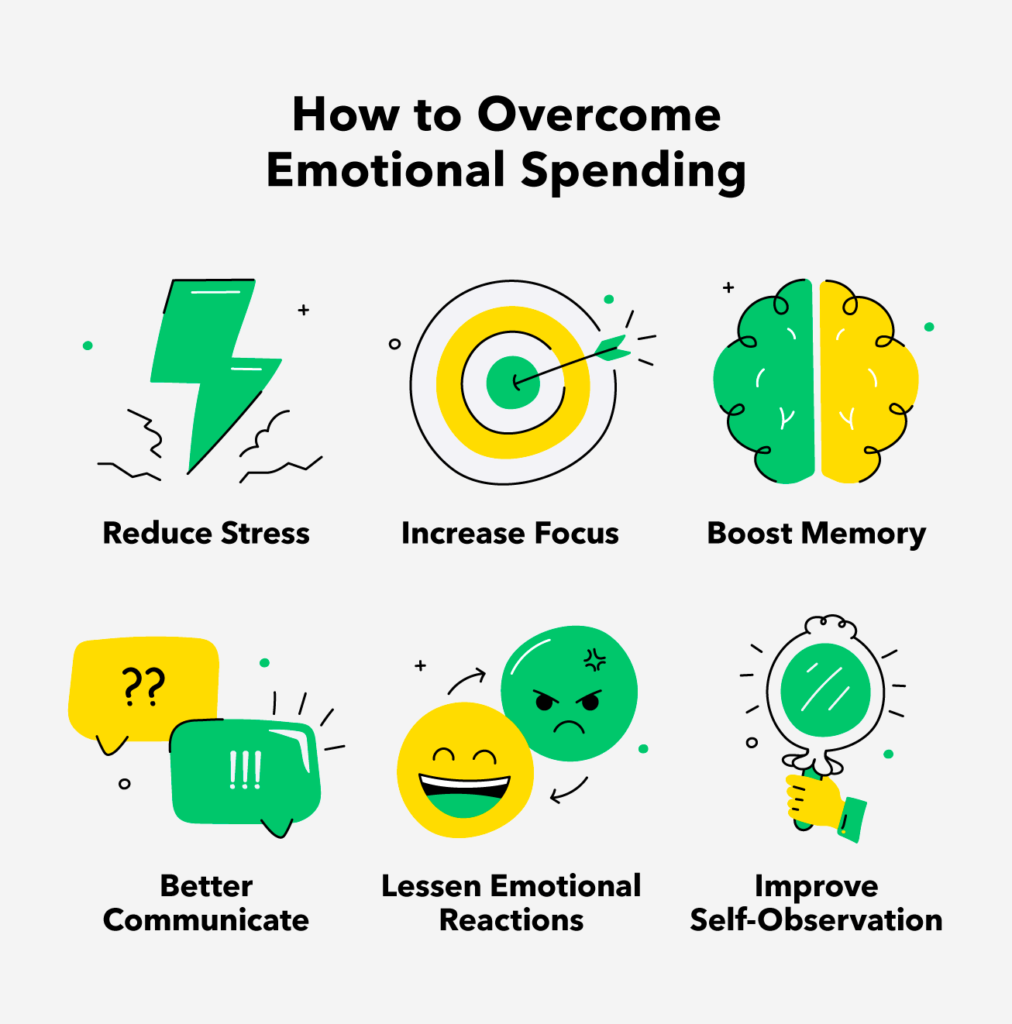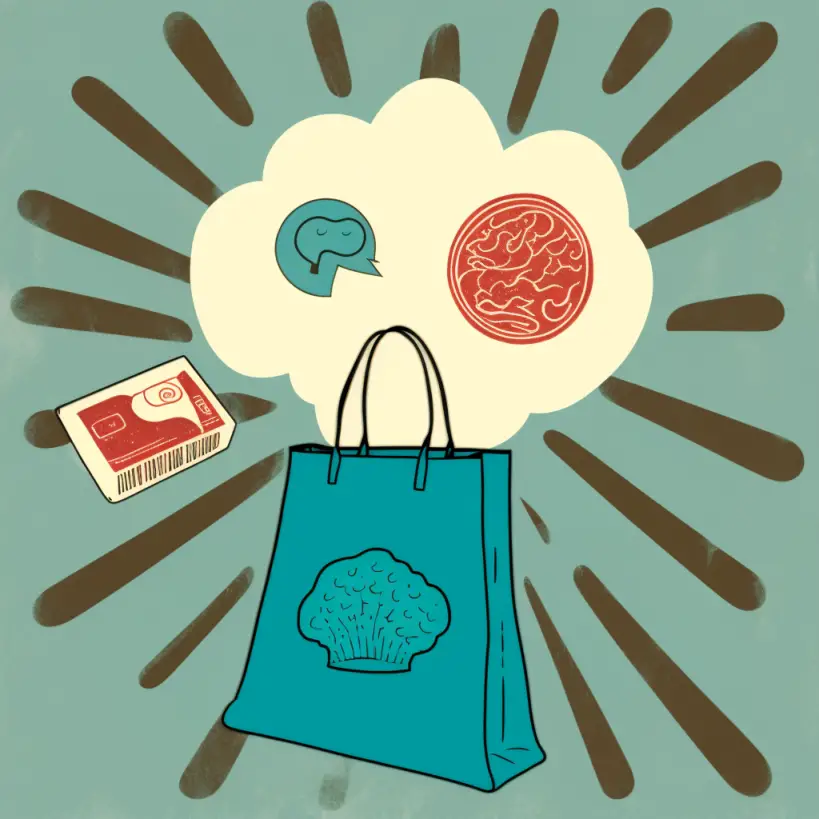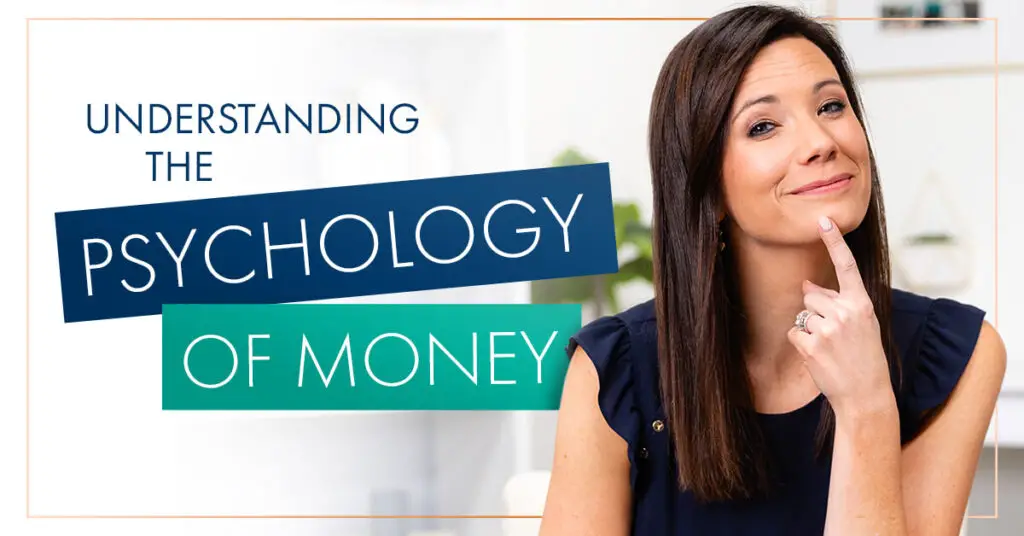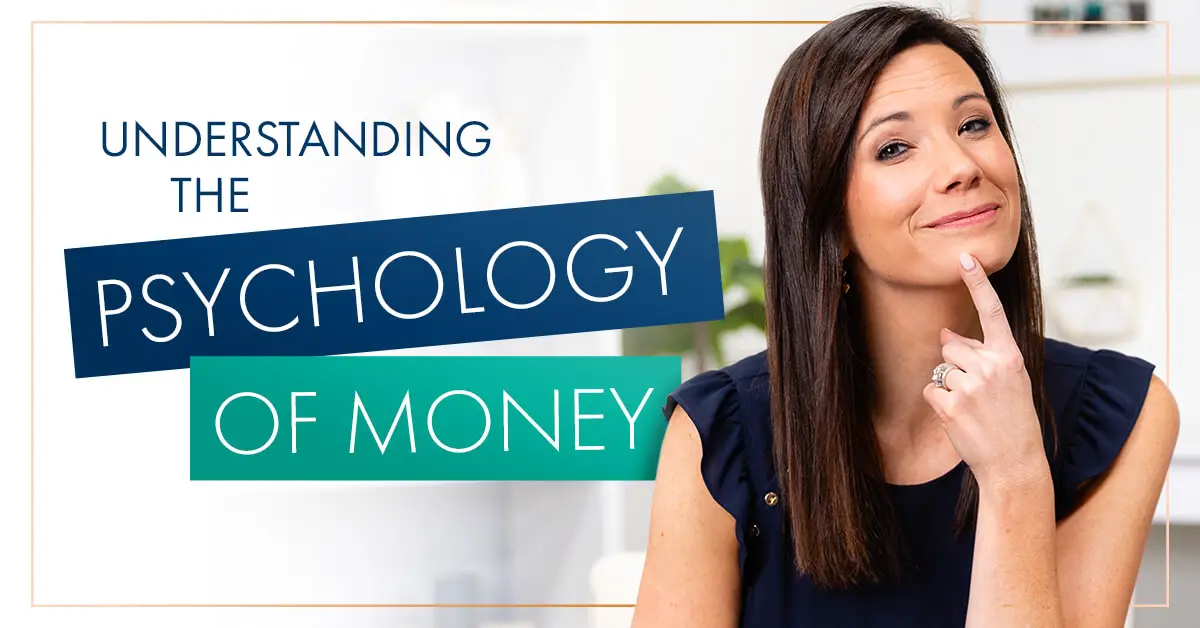In this enlightening article, you will gain valuable insights into the psychology behind spending and learn effective strategies to take control of your financial habits. Delving into the deep realms of our subconscious minds, you will discover how emotions, societal influences, and personal experiences shape our spending behaviors. Armed with this understanding, you will be empowered to make conscious choices in managing your finances and avoid falling into the endless cycle of impulsive purchases and regret. So, grab a cup of coffee, sit back, and embark on this fascinating journey of understanding the psychology of spending and how to master it.

The Psychology of Spending
How emotions influence spending
Emotions play a significant role in our spending habits. When we feel happy, excited, or even sad, we tend to turn to shopping as a way to enhance our mood or alleviate negative feelings. It’s important to understand the relationship between our emotions and spending in order to gain control over our financial decisions.
For example, impulse buying is often driven by emotions such as excitement or instant gratification. When we make impulsive purchases, we are seeking a quick boost of pleasure or distraction from negative emotions. However, these emotional triggers can lead to regret and financial strain in the long run.
The role of social pressures in spending
Social pressures can have a powerful impact on our spending habits. Whether it’s keeping up with the latest fashion trends or buying the newest gadgets, we often feel compelled to spend money in order to fit in or to gain social acceptance.
Many individuals find themselves caught in a cycle of comparison, where they feel the need to match or outdo the spending habits of their peers. This can create a constant sense of pressure to spend beyond one’s means and can lead to financial instability.
The impact of advertising on spending
Advertising plays a significant role in influencing our spending habits. Advertisements are carefully designed to create desire and generate a sense of urgency to buy. They often tap into our emotions and create a need for products or services that we may not actually need.
Advertisers understand our desires and aspirations, and they use this knowledge to manipulate our spending behavior. From catchy jingles to celebrity endorsements, advertising is intentionally crafted to appeal to our emotions and trigger impulsive buying.
The influence of past experiences on spending
Our past experiences shape our attitudes and behaviors towards spending. If we grew up in a household where there was financial abundance and little worry about money, we may have developed a more relaxed and carefree attitude towards spending.
Conversely, if our past experiences involved financial hardship or the stress of managing limited resources, we may develop a more cautious and frugal approach to spending. Our experiences with money can create deep-rooted beliefs and habits that persist into adulthood.
The role of cognitive biases in spending
Cognitive biases are mental shortcuts that our brains use to simplify decision-making processes. While these biases can be helpful in certain situations, they can also lead to irrational and impulsive spending.
One common cognitive bias is the “anchoring” bias, where we rely heavily on the first piece of information we receive when making a decision. This can lead us to make spending choices based on initial price points or perceived value, without fully considering the long-term consequences.
Another cognitive bias is the “availability” bias, which causes us to overestimate the likelihood of events or situations based on how easily we can recall or imagine them. This bias can lead to impulsive spending on items that have been actively advertised or are currently trending.
Understanding Your Spending Habits
Identifying your spending triggers
To gain control over your spending habits, it is crucial to identify your individual spending triggers. Everyone has different factors that influence their spending, such as stress, boredom, or peer pressure.
Take the time to reflect on your own emotional state and circumstances when you find yourself tempted to make impulsive purchases. Understanding what drives your spending will give you a better chance of making conscious and intentional decisions about your money.
Exploring your financial goals
Setting clear financial goals is an important step in understanding your spending habits. Take the time to define what is truly important to you and what you want to achieve financially. Whether it’s saving for a down payment on a house, starting your own business, or retiring comfortably, having a clear goal can help you prioritize your spending.
Write down your financial goals and keep them visible as a reminder of what you are working towards. Having a sense of purpose in your spending can help you resist the temptation of unnecessary purchases.
Analyzing your spending patterns
Analyze your spending patterns to gain a deeper understanding of where your money goes. Keep track of your expenses over a period of time, categorizing them into essentials (such as rent, groceries, and bills) and non-essentials (such as entertainment, dining out, and shopping).
Recognize any patterns or areas where you may be overspending. This analysis will allow you to make informed choices about where you can cut back and redirect your money towards more meaningful goals.
Recognizing your emotional motivations for spending
Emotional motivations often drive our spending, and it’s important to recognize these underlying emotions. Are you buying that new gadget because you genuinely need it, or are you seeking a temporary escape from stress or boredom? Understanding the emotional reasons behind your spending habits can help you make more mindful choices about your purchases.
Keep a spending journal and record your feelings and emotions before and after each purchase. This will provide valuable insights into your emotional motivations and help you develop healthier spending habits.
The Connection between Spending and Happiness
The perception of happiness through material possessions
Many people associate happiness with the acquisition of material possessions. We live in a society that encourages the belief that owning more things will bring us joy and fulfillment.
However, research has shown that the happiness derived from material possessions is often short-lived. The initial excitement wears off, and we find ourselves longing for the next shiny object to bring us happiness once again.
The impact of experiential purchases on long-term happiness
In contrast to material possessions, research suggests that experiential purchases can contribute to long-term happiness. Experiences provide us with memories, personal growth, and a sense of connection with others. Whether it’s traveling, attending a concert, or pursuing a hobby, investing in experiences can have a lasting positive impact on our well-being.
When considering how to spend your money, prioritize experiences that align with your interests, values, and goals. These investments in yourself and your relationships will likely bring you more sustained happiness compared to the temporary thrill of material possessions.
The role of social comparison in the pursuit of happiness
Social comparison can significantly influence our spending habits and our perception of happiness. In the age of social media, it’s easy to fall into the trap of comparing ourselves to others and feeling pressured to keep up with their lifestyles.
Remember that what you see on social media is often a curated highlight reel, and it doesn’t reflect the full reality of someone’s life. Focus on your own priorities and values, and resist the urge to spend money simply to match or exceed others’ standards. True happiness comes from within and cannot be achieved through external possessions or social validation.
The Dangers of Impulsive Spending
The negative consequences of impulsive buying
Impulsive buying can have a range of negative consequences. One immediate consequence is the potential for buyer’s remorse. After the initial excitement wears off, you may find yourself regretting the purchase and realizing that it was not necessary or worth the cost.
Additionally, impulsive buying can lead to financial instability and debt. When we consistently make unplanned purchases, we drain our financial resources and may find ourselves struggling to meet essential needs. This can create stress and anxiety, further impacting our overall well-being.
The link between impulsive spending and debt
Impulsive spending is closely linked to the accumulation of debt. Many people use credit cards or loans to finance impulsive purchases, creating a cycle of overspending and increasing financial burdens.
High levels of debt can hinder financial freedom, limit opportunities, and create a constant state of worry and financial stress. It is important to recognize and address impulsive spending habits in order to avoid falling into a cycle of debt that can be difficult to escape.
The psychology behind impulsive spending behaviors
Impulsive spending behaviors are often driven by a combination of psychological factors. These factors can include the desire for instant gratification, the need for emotional comfort, and the influence of social and cultural norms.
Understanding the underlying psychology behind impulsive spending can help individuals develop strategies to overcome these behaviors and regain control of their finances. By addressing the root causes of impulsive spending, individuals can make conscious choices aligned with their long-term goals and values.
Strategies to overcome impulsive spending
There are several strategies that can help individuals overcome impulsive spending habits:
-
Create a ‘cooling-off’ period: When you feel the urge to make an impulsive purchase, impose a waiting period before making the decision. This will give you time to consider the necessity and long-term impact of the purchase.
-
Practice the 10-second rule: Before making a purchase, take a moment to pause and ask yourself if you truly need the item or if it aligns with your financial goals. This brief moment of reflection can help you make more deliberate choices.
-
Avoid shopping triggers: Identify situations, places, or activities that tend to lead to impulsive spending. If a particular store or online platform triggers your impulse buying, make a conscious effort to stay away from those environments.
-
Engage in healthy alternative activities: Instead of turning to shopping as a way to relieve stress or boredom, explore alternative activities that bring you joy and fulfillment. This could include exercise, spending time with loved ones, pursuing hobbies, or engaging in creative outlets.
By implementing these strategies and being mindful of your spending habits, you can regain control over your impulsive spending tendencies and make decisions aligned with your financial well-being.

Developing Healthy Spending Habits
Creating a budget and financial plan
Creating a budget is an essential step in developing healthy spending habits. A budget allows you to track your income and expenses, prioritize your financial goals, and ensure that you are living within your means.
Start by gathering your financial information and categorizing your expenses. Identify areas where you can cut back on non-essential spending and redirect those funds towards savings or debt repayment. Regularly review your budget and make adjustments as needed to stay on track.
Setting realistic financial goals
In addition to creating a budget, it’s important to set realistic financial goals. These goals will provide you with a roadmap and a sense of purpose in your spending.
Start by defining short-term and long-term goals that are specific, measurable, attainable, relevant, and time-bound (SMART). Whether it’s saving a specific amount each month, paying off a credit card debt, or investing in your retirement, having clear goals will help you stay motivated and focused on your financial well-being.
Practicing delayed gratification
Delayed gratification is the ability to resist immediate satisfaction in order to achieve greater long-term rewards. Developing this skill is crucial in maintaining healthy spending habits.
When faced with the temptation to make an impulsive purchase, practice delaying your gratification. Remind yourself of your financial goals and the potential impact the purchase may have on your progress. By prioritizing long-term value over short-term pleasure, you can develop a stronger sense of financial discipline.
Implementing spending restrictions
Implementing spending restrictions can help you stay accountable to your financial goals and prevent impulsive purchases. Consider setting limits on certain categories of spending, such as dining out or entertainment expenses.
You can also establish a cash-only policy for certain discretionary spending. By using cash instead of credit cards, you will have a tangible reminder of the money leaving your wallet, making you more conscious of your spending decisions.
Seeking professional help if needed
If you find yourself struggling to gain control over your spending habits, do not hesitate to seek professional help. Financial advisors, credit counselors, or therapists specializing in financial psychology can provide valuable guidance and support.
These professionals can offer personalized strategies, education, and resources to help you overcome any psychological barriers and develop healthy spending habits. Remember, seeking help is a sign of strength and a proactive step towards improving your financial well-being.
The Importance of Emotional Intelligence in Controlling Spending
Understanding and managing emotions related to spending
Emotional intelligence plays a crucial role in controlling spending habits. It involves being aware of our emotions, understanding their impact on our behavior, and effectively managing them.
By developing emotional intelligence, you can recognize and address the emotional triggers that lead to impulsive spending. Practice self-reflection and regularly check in with yourself to understand how your emotions may be influencing your spending decisions. By increasing your awareness, you can make more intentional choices aligned with your long-term financial goals.
Developing self-control and discipline
Self-control and discipline are essential skills in controlling spending. These skills allow you to resist immediate gratification and make choices that align with your long-term priorities.
Developing self-control and discipline takes practice. Start by setting small goals, such as avoiding unnecessary purchases for a week, and gradually increase the difficulty over time. Celebrate your achievements and remind yourself of the long-term benefits of exercising self-control.
Utilizing mindfulness techniques to control spending urges
Mindfulness techniques can be highly effective in controlling spending urges. Mindfulness involves being fully present in the current moment, without judgment or attachment to thoughts and emotions.
When faced with the desire to make an impulsive purchase, practice mindfulness by taking a deep breath and consciously observing your thoughts and emotions. Allow yourself to acknowledge the urge without acting on it immediately. By creating space between the impulse and your response, you can make more conscious choices that align with your long-term financial well-being.
The Role of Personal Values in Spending Decisions
Aligning spending with personal values
Aligning your spending with your personal values is key to developing healthy spending habits. Your values reflect what is truly important to you and guide your decision-making.
Take the time to reflect on your values and identify which ones are most important to you. When making spending decisions, consider how each purchase aligns with these values. For example, if sustainability is important to you, opt for eco-friendly and ethically sourced products.
By aligning your spending with your values, you will feel more fulfilled and content with your purchases, knowing that they are in line with what truly matters to you.
Prioritizing needs over wants
To develop healthy spending habits, it’s important to prioritize needs over wants. Needs are essential for your well-being and survival, while wants are desires that are not necessarily essential.
When making purchasing decisions, ask yourself if the item or experience is a genuine need or a mere want. By focusing on fulfilling your needs first, you can ensure that your spending aligns with your priorities and financial goals.
Making conscious and deliberate spending choices
Conscious and deliberate spending involves making choices that are aligned with your priorities and financial well-being. Instead of mindlessly succumbing to marketing tactics or societal pressures, take the time to consider the true value and impact of each purchase.
Before making a purchase, ask yourself if the item will truly enhance your life or bring you sustainable happiness. By approaching spending choices consciously and deliberately, you can break free from impulsive buying habits and make choices that contribute to your long-term financial success.
Strategies to Control Impulsive Buying
Creating a ‘cooling-off’ period
One effective strategy to control impulsive buying is to create a ‘cooling-off’ period. When you feel the urge to make an impulsive purchase, commit to waiting for a certain period of time, such as 24 hours or a week, before making the decision.
During this cooling-off period, take the time to reflect on whether the purchase is truly necessary or aligned with your financial goals. This break allows you to distance yourself from the immediate emotional impulse and make a more rational and informed decision.
Practicing the 10-second rule
The 10-second rule is another helpful technique to control impulsive buying. Before making a purchase, pause for at least 10 seconds and ask yourself if you truly need the item or if it aligns with your financial goals.
During this brief pause, consider the potential long-term value of the purchase and whether it brings you genuine joy or fulfills a practical need. By implementing this rule, you are giving yourself a moment of reflection and creating space for more intentional spending choices.
Avoiding shopping triggers
Identify situations, places, or activities that tend to trigger your impulsive spending. It could be walking into a specific store, browsing online shopping websites, or shopping while feeling stressed or bored.
Once you recognize these triggers, make a conscious effort to avoid or minimize exposure to them. Unsubscribe from email lists, unfollow social media accounts that promote excessive consumerism, and find alternative activities to engage in during times when you are most susceptible to impulsive buying.
Engaging in healthy alternative activities
Instead of turning to shopping as a way to relieve stress or boredom, find healthy alternative activities that bring you joy and fulfillment. Engaging in hobbies, exercising, spending time with loved ones, or pursuing creative outlets can help distract you from the desire to spend impulsively.
Redirecting your energy and focus towards activities that align with your values and provide meaningful experiences will not only improve your overall well-being but also reduce the temptation to make impulsive purchases.

Changing Your Money Mindset
Identifying and challenging limiting beliefs about money
Changing your money mindset involves identifying and challenging any limiting beliefs you may have about money. These beliefs can impact your spending habits and overall financial well-being.
Common limiting beliefs about money include “money is scarce and hard to come by,” “I’ll never be able to afford the things I want,” or “having money is selfish.” By recognizing these beliefs and actively challenging them, you can create a more positive and abundance-focused mindset.
Replace limiting beliefs with affirmations and positive statements about money, such as “money flows to me easily and abundantly” or “I deserve financial success and security.” By shifting your mindset, you open yourself up to new possibilities and opportunities for financial growth.
Developing a positive and abundance mindset
A positive and abundance mindset is essential for developing healthy spending habits. Instead of focusing on scarcity and lack, adopt an attitude of gratitude and appreciation for the resources and opportunities available to you.
Practice daily gratitude by acknowledging the abundance in your life, whether it’s the roof over your head, the food on your table, or the relationships you cherish. By cultivating an abundance mindset, you will develop a healthier relationship with money and make more mindful spending choices.
Overcoming fear and guilt associated with spending
Many people experience fear and guilt when it comes to spending money, especially on non-essential items or experiences. This fear and guilt can prevent individuals from enjoying their hard-earned money and making choices that align with their values.
To overcome these negative emotions, reframe your perspective on spending. Recognize that it is okay to enjoy the money you have worked for, as long as it is done consciously and in line with your financial goals. By letting go of fear and guilt, you can develop a healthier and more balanced approach to spending.
Seeking Support from Others
Sharing financial goals with a partner or friend
Sharing your financial goals with a partner or trusted friend can provide much-needed support and accountability. Opening up about your aspirations and challenges allows you to work together towards common objectives and encourage each other along the way.
Discuss your goals, create a shared vision of your financial future, and set regular check-ins to assess progress and make necessary adjustments. The support and feedback from a trusted companion can foster motivation and help you stay on track towards your spending and financial goals.
Joining support groups or online communities
Joining support groups or online communities dedicated to personal finance and responsible spending can be immensely helpful in controlling your spending habits. These groups provide a safe space to share experiences, learn from others, and gain valuable insights and strategies.
Engage in conversations, ask questions, and seek advice from individuals who have faced similar challenges. By surrounding yourself with like-minded individuals, you can find encouragement, inspiration, and guidance on your journey towards healthier spending habits.
Accountability partners for spending habits
Accountability partners can play a crucial role in helping you control your spending habits. Find someone who shares your desire for financial improvement and is willing to hold you accountable for your actions.
Regular check-ins with your accountability partner can provide motivation, offer an outside perspective on your spending choices, and help you stay committed to your financial goals. Together, you can support each other in making conscious and deliberate spending decisions.
In conclusion, understanding the psychology of spending is key to gaining control over our financial decisions. By recognizing the influence of emotions, social pressures, past experiences, and cognitive biases, we can develop healthier spending habits and make choices that align with our values and long-term goals. Through mindfulness, self-reflection, and seeking support from others, we can cultivate a positive money mindset and overcome impulsive buying behaviors. Remember, developing healthy spending habits is a journey, and it requires patience, self-awareness, and the willingness to make intentional choices that promote our financial well-being.



